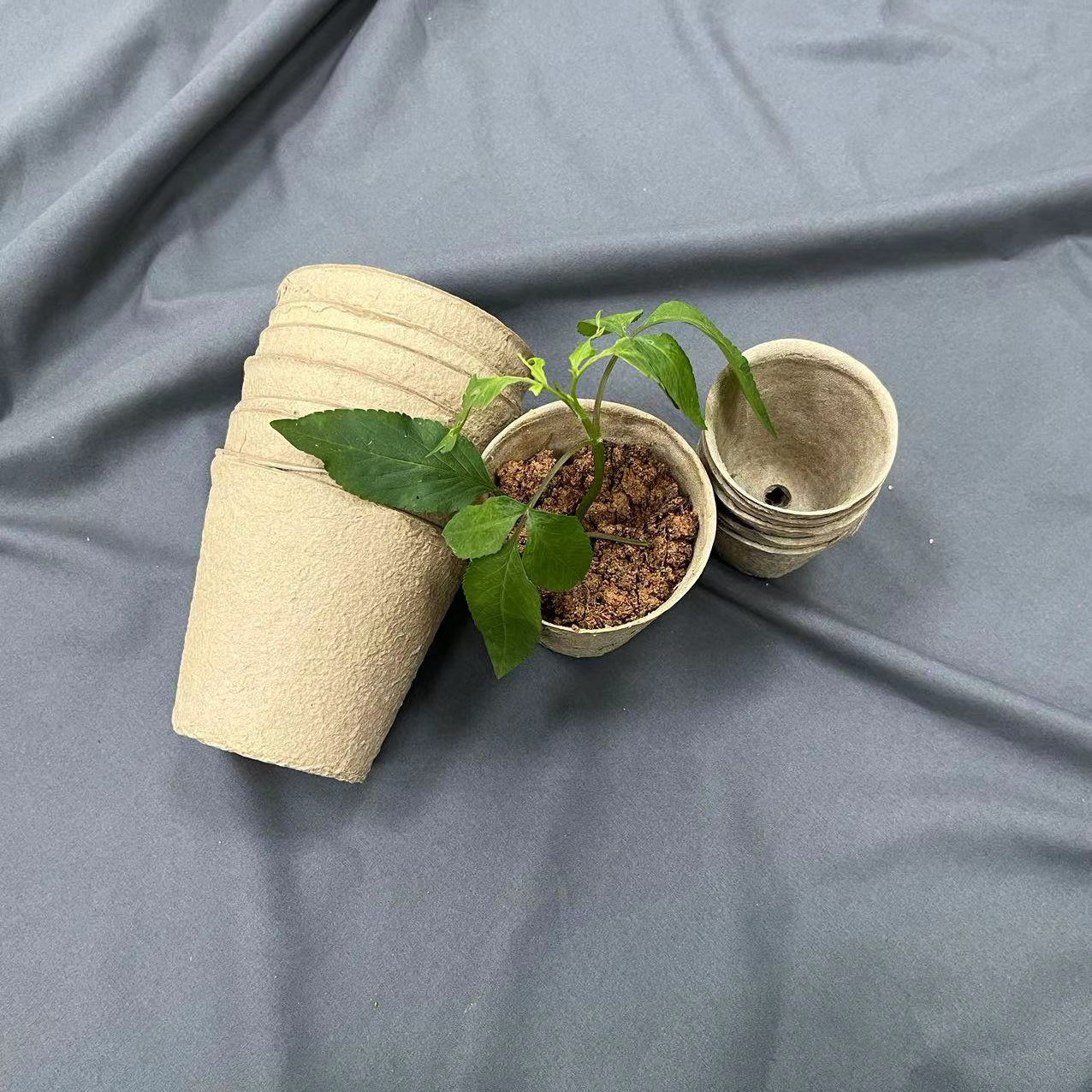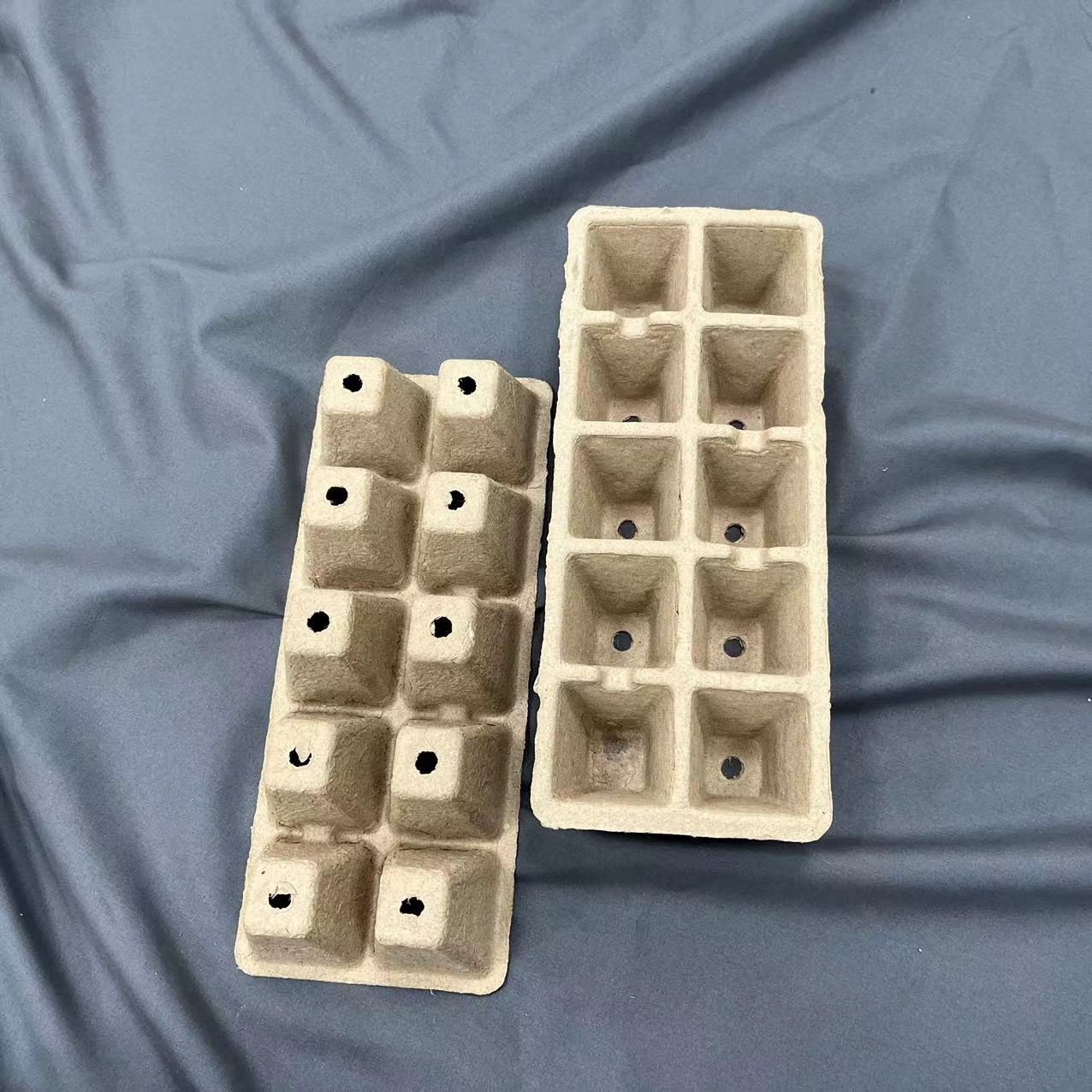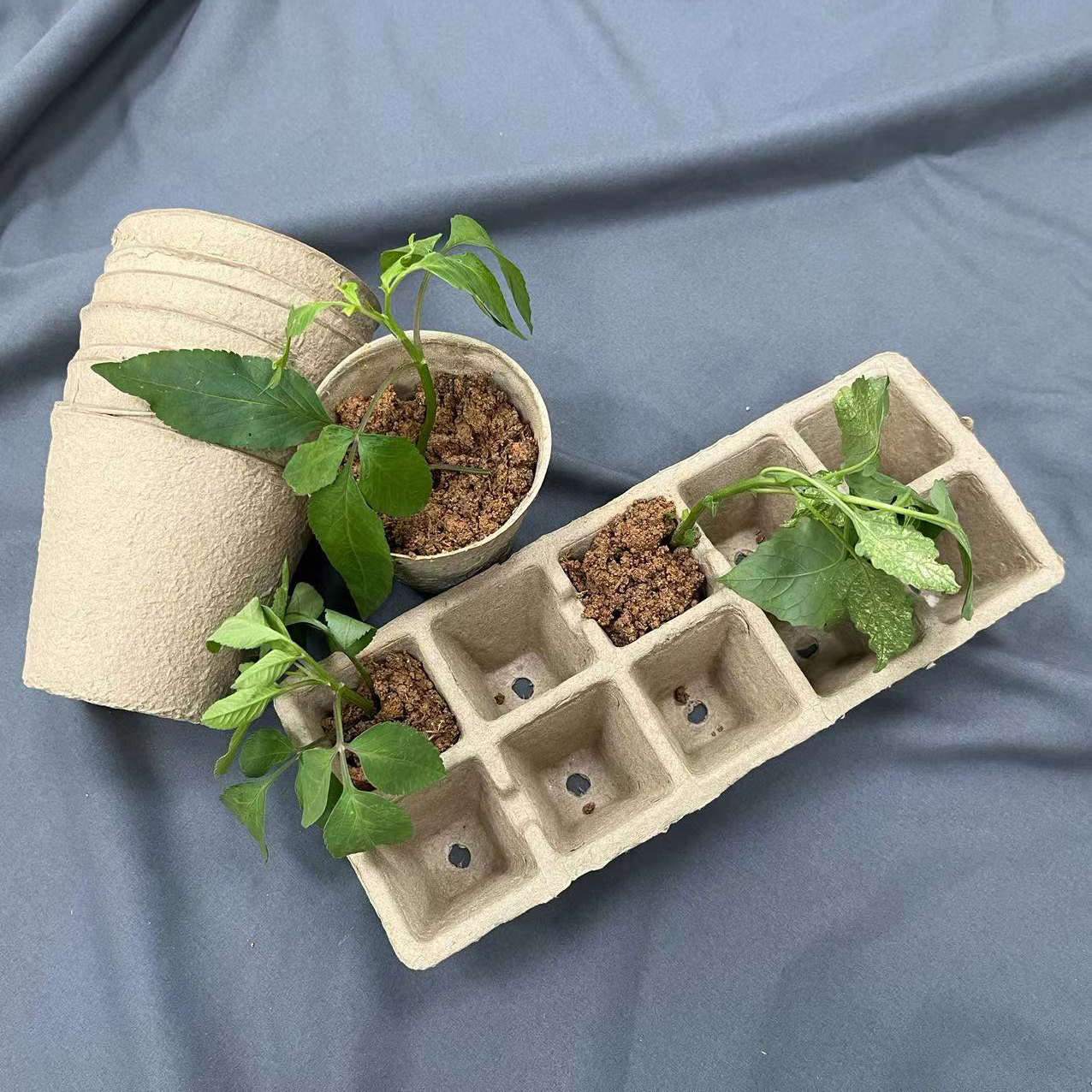Seed trays are essential tools for starting seeds indoors and transplanting seedlings into the garden. Traditionally, plastic seed trays have been widely used for this purpose. However, paper pulp seed trays have emerged as a sustainable alternative, offering several advantages over their plastic counterparts. In this article, we will compare pulp seed trays and plastic seed trays, examining their characteristics, benefits, and environmental impact.
1. Environmental Impact:
Paper pulp seed trays are made from recycled paper fibers or agricultural residues, making them biodegradable and compostable at the end of their useful life. In contrast, plastic seed trays are typically made from non-biodegradable petroleum-based plastics, contributing to environmental pollution and landfill waste. As consumers increasingly prioritize sustainability, the eco-friendly attributes of pulp seed trays make them a preferred choice for environmentally conscious gardeners.

2. Biodegradability and Compostability:
One of the key advantages of pulp seed trays is their biodegradability and compostability. At the end of the growing season, paper pulp seed trays can be shredded and added to compost bins or garden beds, where they break down naturally into organic matter. This closed-loop system helps reduce waste and enriches the soil with nutrients, supporting healthy plant growth. Plastic seed trays, on the other hand, persist in the environment for hundreds of years, contributing to plastic pollution and posing long-term environmental risks.
3. Sturdiness and Durability:
While plastic seed trays are known for their durability and reusability, paper pulp seed trays offer comparable sturdiness and resilience. Modern manufacturing techniques and advancements in pulp molding technology have improved the strength and structural integrity of pulp seed trays, making them suitable for multiple uses throughout the growing season. Additionally, some pulp seed trays are reinforced with additives or coatings to enhance their water resistance and durability, ensuring reliable performance in gardening applications.

4. Water Retention and Drainage:
Both pulp seed trays and plastic seed trays provide adequate water retention and drainage for seed germination and seedling growth. Pulp seed trays are porous and absorbent, allowing for uniform moisture distribution and root development. Excess water drains freely through the bottom of the trays, preventing waterlogging and root rot. Plastic seed trays typically feature drainage holes to facilitate water drainage, but they may require additional monitoring to prevent overwatering and ensure optimal growing conditions.
5. Customization and Design Flexibility:
Pulp seed trays offer design flexibility and customization options to meet the diverse needs of gardeners and growers. They can be molded into various shapes, sizes, and configurations, accommodating different types of seeds and planting arrangements. Pulp seed tray suppliers and wholesalers offer a wide range of options, including cell trays, plug trays, and multi-cell inserts, allowing for tailored solutions for specific crops and gardening applications. Plastic seed trays also come in a variety of designs, but they may lack the eco-friendly credentials and customization options of pulp seed trays.

6. Cost Considerations:
In terms of cost, pulp seed trays may be slightly more expensive than plastic seed trays due to the manufacturing process and materials involved. However, the long-term environmental benefits and sustainability of pulp seed trays often justify the initial investment for eco-conscious gardeners. Additionally, the growing demand for sustainable gardening products has led to increased availability and competitive pricing of pulp seed trays from reputable suppliers and wholesalers.
In conclusion, pulp seed trays offer numerous advantages over plastic seed trays in terms of environmental sustainability, biodegradability, and design flexibility. While plastic seed trays remain a popular choice for their durability and reusability, the shift towards eco-friendly gardening practices has fueled the adoption of pulp seed trays among environmentally conscious gardeners and growers. As the demand for sustainable gardening solutions continues to rise, pulp seed tray suppliers and wholesalers play a crucial role in providing high-quality, eco-friendly alternatives to plastic seed trays, supporting greener and more sustainable gardening practices.

